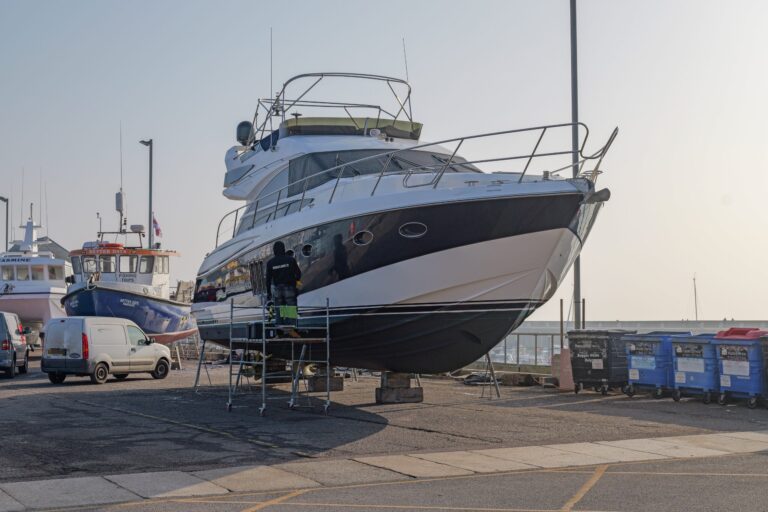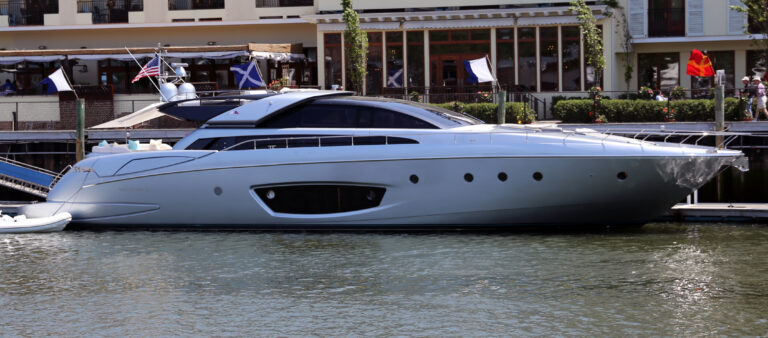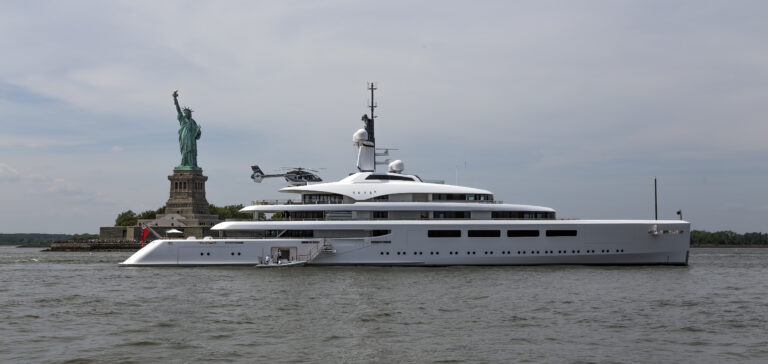How Many Hours Does a Yacht Last
How long does a yacht last? It’s a burning question for boat enthusiasts and curious minds alike. Yachts, those luxurious vessels synonymous with opulence and blissful seafaring, hold an undeniable allure. But amidst dreams of cruising the open seas, an important reality check awaits: how much longevity can one expect from these floating marvels? In this article, we will delve into the factors that determine a yacht’s lifespan, exploring the range of hours a yacht can endure before reaching its inevitable fate. Strip away the glitz and glamour, and let’s unravel the truth about a yacht’s endurance.
Table of Contents
- The Lifespan of a Yacht: Assessing Its Durability and Factors Influencing Longevity
- Factors Affecting the Longevity of a Yacht: Construction, Maintenance, and Usage
- Key Maintenance Practices to Extend the Lifespan of a Yacht
- Expert Recommendations for Prolonging the Life of Your Yacht
- Exploring the Average Lifespan of Different Yacht Types
- Planning for the Future: When to Consider Upgrading or Replacing Your Yacht
- FAQs
- Final Thoughts
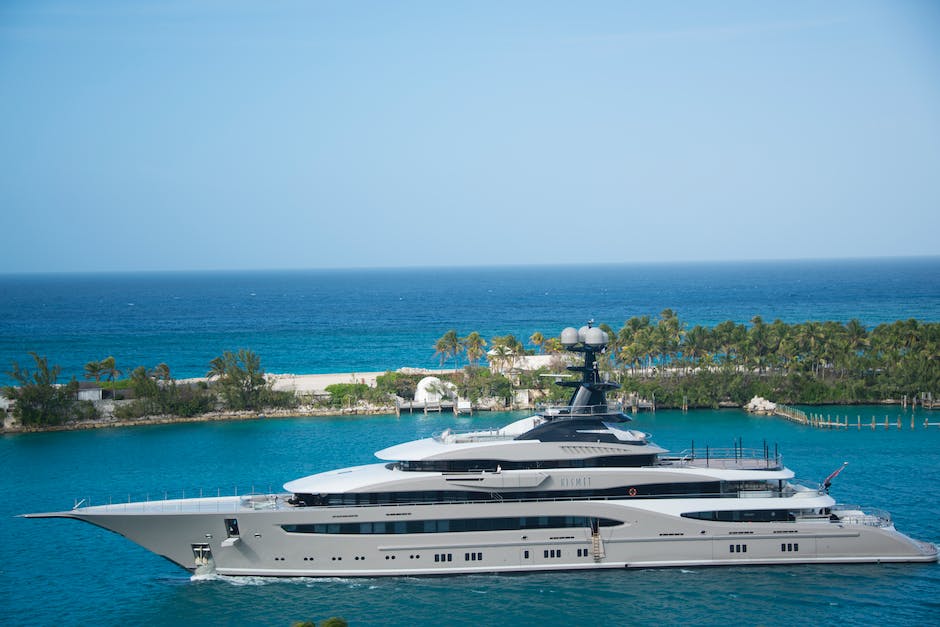
The Lifespan of a Yacht: Assessing Its Durability and Factors Influencing Longevity
When it comes to yachts, durability is a crucial factor that determines their lifespan and overall longevity. Understanding the various elements that influence a yacht’s durability is essential for owners and enthusiasts alike. So, what factors come into play when assessing a yacht’s lifespan?
Maintenance: Regular and meticulous maintenance is key to prolonging a yacht’s lifespan. This includes routine cleaning, checking for corrosion, and addressing any potential issues promptly. Failure to maintain a yacht properly can lead to accelerated wear and tear, negatively impacting its overall durability.
Usage: The way a yacht is used greatly affects its lifespan. Constant exposure to harsh weather conditions, particularly saltwater environments, can accelerate deterioration. Additionally, rigorous use, such as high-speed sailing or extended voyages, can put significant strain on the yacht’s structure and systems, potentially reducing its lifespan.
Quality of Construction: The materials and construction techniques used during the yacht’s production play a crucial role in determining its durability. Yachts built with high-quality materials and superior craftsmanship are more likely to withstand the test of time than those with subpar construction.
Technology and Innovations: Advances in yacht technology can also contribute to a yacht’s durability. From improved hull designs to corrosion-resistant coatings, innovative solutions can help extend a yacht’s lifespan by minimizing damage caused by environmental factors.
Proper Storage: Storing a yacht correctly during periods of inactivity is vital to its longevity. Dry, secure storage facilities protect the vessel from extreme weather conditions and reduce the risk of damage from moisture, mold, or pests.
By carefully considering these factors affecting a yacht’s durability and implementing best practices for maintenance and usage, owners can maximize the lifespan of their cherished vessels, ensuring many years of enjoyable and worry-free adventures on the open water.

Factors Affecting the Longevity of a Yacht: Construction, Maintenance, and Usage
When it comes to ensuring the longevity of a yacht, there are three key factors that play a crucial role: construction, maintenance, and usage.
Construction: The way a yacht is built greatly impacts its durability. High-quality materials such as fiberglass, aluminum, or steel contribute to a sturdier vessel that can withstand the test of time. A strong hull design, proper insulation, and high-quality fittings are also vital in ensuring the yacht’s longevity. Attention to detail during the construction process plays a significant role as well, as even the smallest oversight can lead to potential issues down the line.
Maintenance: Regular and thorough maintenance is essential for preserving a yacht’s longevity. This includes routine inspections, cleaning, and prompt repairs. Regularly checking the hull for any signs of damage, such as cracks or corrosion, is crucial. Adequate maintenance of the electrical, mechanical, and plumbing systems, as well as the yacht’s engines, should never be overlooked. It is equally important to protect the yacht from harsh environmental conditions, such as saltwater corrosion and prolonged sun exposure, by utilizing proper protective coatings and covers.

Key Maintenance Practices to Extend the Lifespan of a Yacht
Yachts are truly marvelous vessels that require meticulous care to ensure their longevity. By following these essential maintenance practices, you can extend the lifespan of your beloved yacht and continue to sail the open seas with confidence.
Regular Cleaning and Washing: Keep your yacht pristine by frequently cleaning and washing its exterior surfaces. This helps prevent the buildup of dirt, salt, and grime, which can corrode the hull and other components over time. Use gentle cleaning solutions, soft brushes, and non-abrasive cloths to avoid causing any damage. Don’t forget to pay special attention to hard-to-reach areas such as the propeller, anchor, and anchor chain.
Engine Maintenance: The heart of your yacht, the engine, requires regular maintenance to ensure optimal performance. Change the oil and filters as per the manufacturer’s recommendations, inspect all belts and hoses for wear and tear, and clean the fuel system at regular intervals. Consider having a professional marine mechanic conduct routine checks to identify and address any potential issues early on.
Electrical System Checks: The electrical system plays a vital role in the proper functioning of various onboard components. Routinely inspect the wiring, connectors, and switches for any signs of corrosion, loose connections, or damage. Additionally, keep an eye on battery levels and ensure they are charged and properly maintained. Consider investing in a battery monitor to keep track of their health and prevent unexpected failures while out at sea.
Bilge Inspection and Pump Maintenance: The bilge area is prone to accumulating water, dirt, and debris. Regularly inspect the bilge for any signs of leaks, oil contamination, or blockage, and promptly address any issues found. Clean the bilge pump and ensure it is functioning correctly to prevent flooding and potential damage to the yacht. Maintain spare parts and be familiar with the manual override process in case of pump failure.
By following these key maintenance practices, you can safeguard the lifespan of your yacht, minimize unexpected breakdowns, and enjoy countless unforgettable voyages on the shimmering waters. Remember, consistency in upkeep and attention to detail is the recipe for a yacht that stands the test of time.
Expert Recommendations for Prolonging the Life of Your Yacht
Yachts are a significant investment, so it’s essential to take proper care of them to ensure their longevity. To help you prolong the life of your prized possession, we’ve gathered some expert recommendations that will keep your yacht in top shape for years to come.
Regular Maintenance:
- Cleanliness is key: Rinse your yacht with fresh water after each use to remove salt and dirt buildup. Regularly clean the hull, deck, and interior to prevent mildew and corrosion.
- Inspect and repair: Perform routine inspections to identify any signs of wear or damage. Promptly address issues such as cracks, leaks, or loose fittings to prevent further deterioration.
- Engine maintenance: Follow the manufacturer’s guidelines for engine maintenance, including regular oil changes and filter replacements. Keep an eye on fluid levels and ensure proper ventilation to avoid overheating.
Protection and Storage:
- Invest in covers: Use high-quality covers specifically designed for yachts to protect them from the elements. These covers will shield your yacht from sun exposure, rain, and potential damage caused by dust or debris.
- Consider UV protection: Apply a protective ultraviolet (UV) coating to your yacht’s exterior surfaces to prevent fading, discoloration, and damage caused by prolonged sun exposure.
- Choose a suitable storage location: If you’re not using your yacht for an extended period, consider finding a safe and secure storage facility. Ideally, it should provide protection from extreme weather conditions and offer proper support to prevent damage to the hull and other components.
By following these expert recommendations, you can ensure that your yacht remains in excellent condition, allowing you to enjoy countless memorable voyages on the open seas. Remember, regular maintenance, adequate protection, and a suitable storage solution go a long way in prolonging the life of your beloved yacht.

Exploring the Average Lifespan of Different Yacht Types
Yachts are not just luxurious vessels, but also long-term investments. As a yacht owner, it is essential to understand the average lifespan of different yacht types to make informed decisions about your purchase. By exploring the durability and longevity of various yacht types, you can ensure that your investment will provide lasting enjoyment for years to come.
Here are some key points to consider when evaluating the average lifespan of different yacht types:
1. Sailing Yachts: These elegant vessels, propelled by the wind, can have an average lifespan of 40-50 years. Their simple yet robust design allows for easy maintenance and services, ensuring that they can withstand the test of time. Whether you enjoy leisurely cruising or competitive racing, a well-maintained sailing yacht can be your loyal companion for decades.
2. Motor Yachts: Known for their power and speed, motor yachts offer a different boating experience. With an average lifespan of 30-40 years, these vessels rely on advanced engines and propulsion systems for smooth navigation. Regular maintenance of engines, electrical systems, and hull paint is crucial to extend their lifespan and retain the yacht’s value.
3. Catamarans: Increasingly popular for their stability and spaciousness, catamarans have an average lifespan of 30-40 years. Their twin-hulled design provides enhanced comfort, while their sturdy construction ensures durability. Regular inspections and maintenance of the hull, rigging, and sails are essential to maximize their lifespan and preserve their value.
4. Luxury Yachts: Typically larger in size and boasting extravagant amenities, luxury yachts have an average lifespan of around 30 years. These vessels require meticulous upkeep to ensure optimal performance and minimize wear and tear. Regularly inspecting and maintaining mechanical systems, luxurious interiors, and external features such as helipads or swimming pools will keep your luxury yacht in pristine condition.
Remember, these are average lifespan ranges, and individual factors such as maintenance, usage, and environmental conditions can influence the longevity of your yacht. By investing in regular maintenance and timely repairs, you can extend the lifespan of your yacht, making it a reliable companion for your maritime adventures.
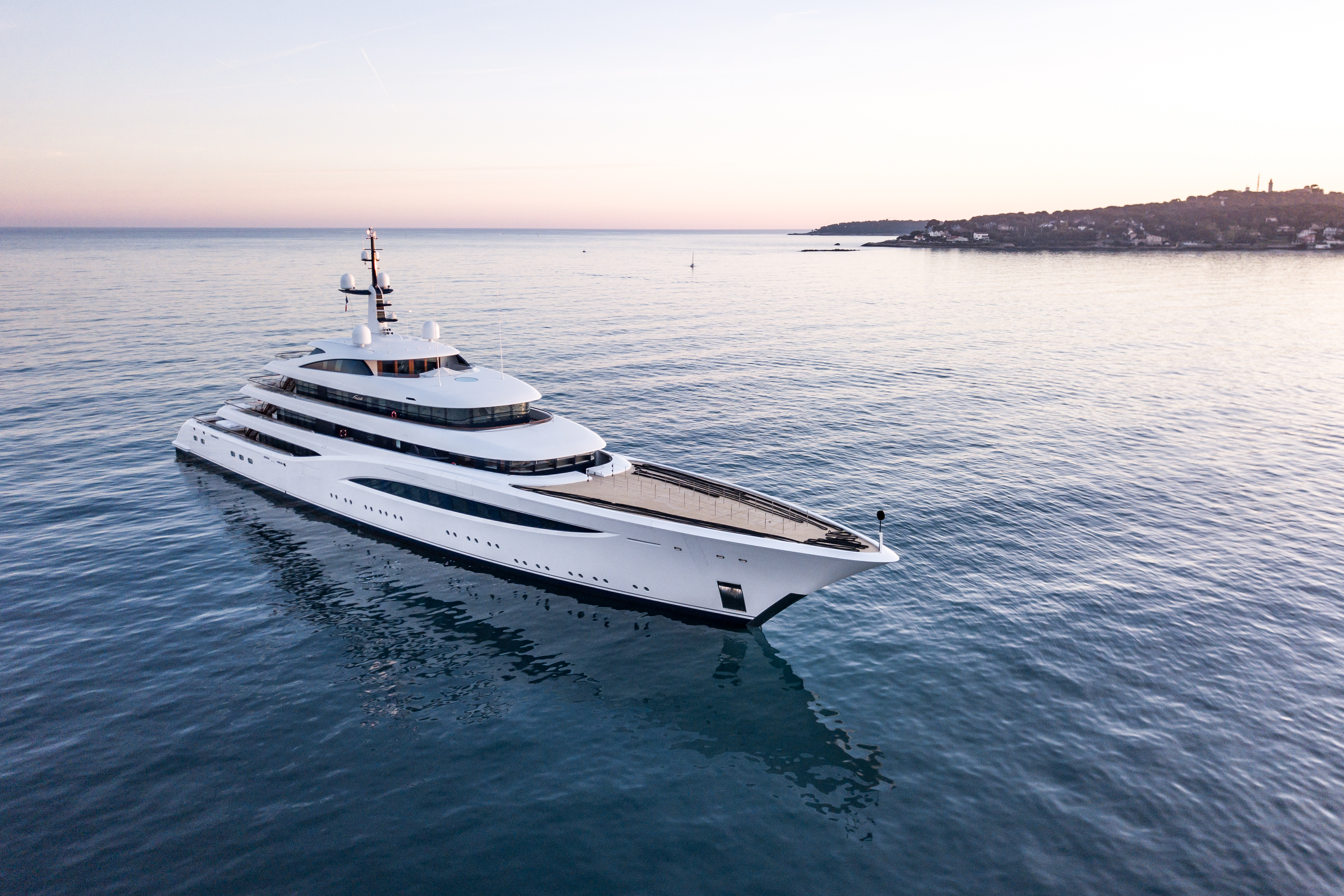
Planning for the Future: When to Consider Upgrading or Replacing Your Yacht
Signs it’s Time to Upgrade or Replace Your Yacht:
1. Wear and Tear: If your yacht has seen better days and is showing signs of significant wear and tear, it might be time to consider an upgrade or replacement. Look out for issues such as cracks in the hull, peeling paint, or a worn-out interior. These signs not only affect the aesthetics but can also indicate underlying structural problems that may compromise safety while sailing.
2. Outdated Technology: If your yacht lacks the latest technology and gadgets, it could be holding you back from enjoying the full potential of today’s advancements. Upgrading to a more modern vessel with state-of-the-art navigation systems, advanced safety features, and cutting-edge entertainment options can greatly enhance your yachting experience.
3. Changing Lifestyle Needs: As your life evolves, so do your requirements. If your current yacht no longer meets your needs, whether it’s due to an expanding family, different cruising preferences, or a desire for more luxurious amenities, it may be time to start considering a new yacht that can better accommodate your changing lifestyle.
Factors to Consider:
1. Budget: Determine your budget and evaluate whether it allows for upgrading your current yacht or purchasing a new one. Consider not only the initial cost but also ongoing maintenance, mooring fees, insurance, and additional expenses, such as crew and fuel.
2. Resale Value: If you opt to upgrade, weigh the potential increase in resale value that a yacht renovation may bring. On the other hand, know that certain upgrades may not yield the desired return on investment. Weighing the costs and benefits can help you make an informed decision.
3. Usage Frequency: Consider how often you use your yacht and for what purpose. If you’re an avid sailor who spends a significant amount of time at sea, investing in a more advanced and robust vessel might be worth the cost. However, if you only use your yacht occasionally, a budget-friendly upgrade that meets your basic needs may suffice.
FAQs
Q: How long does a yacht last?
A: The lifespan of a yacht varies depending on various factors, but on average, a yacht can last for around 20 to 30 years with proper maintenance and care.
Q: What factors affect the lifespan of a yacht?
A: Several factors influence how long a yacht will last. These include the quality of construction, materials used, the frequency of use, maintenance, and environmental conditions it is exposed to.
Q: How can I extend the lifespan of my yacht?
A: To prolong the life of your yacht, it is crucial to maintain it regularly. This includes routine inspections, cleaning, and necessary repairs. Additionally, storing your yacht properly, avoiding extreme weather conditions, and using it responsibly will help extend its longevity.
Q: Does the type of yacht affect its lifespan?
A: Yes, the type of yacht can impact its lifespan. Generally, well-built yachts, constructed with high-quality materials, tend to have a longer lifespan compared to lesser-quality models.
Q: Can a yacht last indefinitely with proper care?
A: While proper care and maintenance can significantly extend a yacht’s lifespan, it is important to note that no yacht can last indefinitely. Like any other object, wear and tear over time will eventually take its toll, despite even the best care.
Q: How can I determine when it’s time to replace my yacht?
A: You should consider replacing your yacht when the cost of repairs and maintenance become excessively high, or when it starts experiencing structural issues that compromise safety.
Q: Is there a difference in the lifespan of motor yachts and sailing yachts?
A: Motor yachts tend to have a longer lifespan compared to sailing yachts. This is primarily because the engines on motor yachts are usually replaced or rebuilt more frequently, giving them a new lease on life. Sailing yachts rely heavily on their rigging and sails, which may require more frequent replacement or maintenance.
Q: Are there any steps I can take to increase the resale value of my yacht?
A: Yes, maintaining detailed service records, investing in regular maintenance and upgrades, and keeping your yacht clean and well-presented can enhance its resale value.
Q: What happens to yachts after their lifespan is over?
A: When a yacht reaches the end of its lifespan, it is often scrapped or decommissioned. Salvageable parts may be reused, and the remaining hull is typically dismantled and disposed of in an environmentally friendly manner.
Q: Are there any exceptions to the average lifespan of a yacht?
A: Yes, some yachts that receive impeccable care and undergo significant refurbishment can surpass their average lifespan. However, this is not typical and requires substantial investments of time and money.
In Summary
In conclusion, determining how many hours a yacht lasts is not an exact science. There are various factors that can affect its lifespan, such as maintenance, usage, and construction quality. While there is no definitive answer, it is safe to say that a well-maintained yacht can last for many years. Regular upkeep, including inspections, servicing, and repairs, can significantly prolong its lifespan. Ultimately, the key to getting the most out of your yacht is to treat it with care, ensuring it is properly maintained and used responsibly. So, if you dream of sailing the open waters for years to come, make sure to provide your yacht with the attention and care it deserves. Happy sailing!


